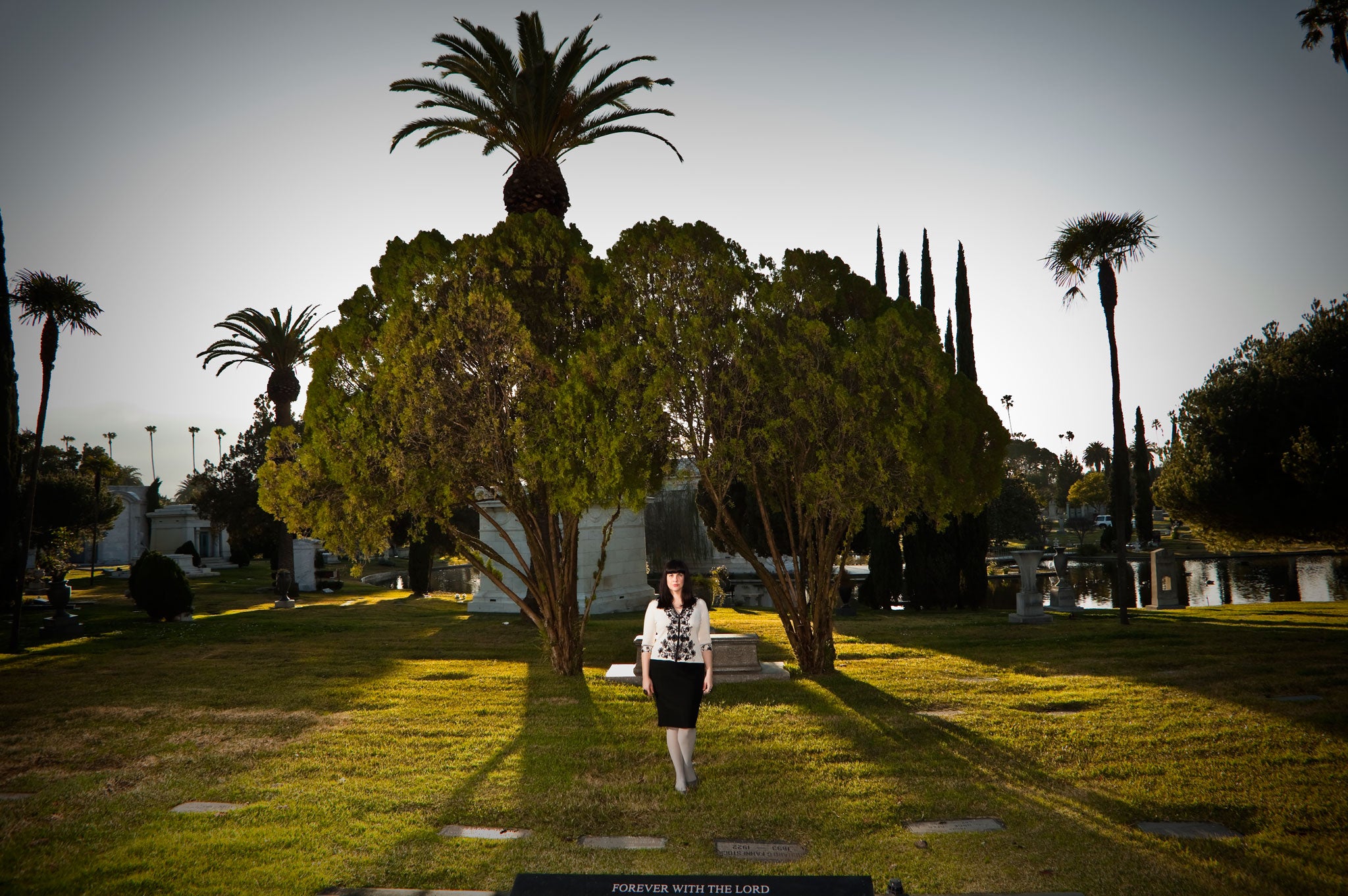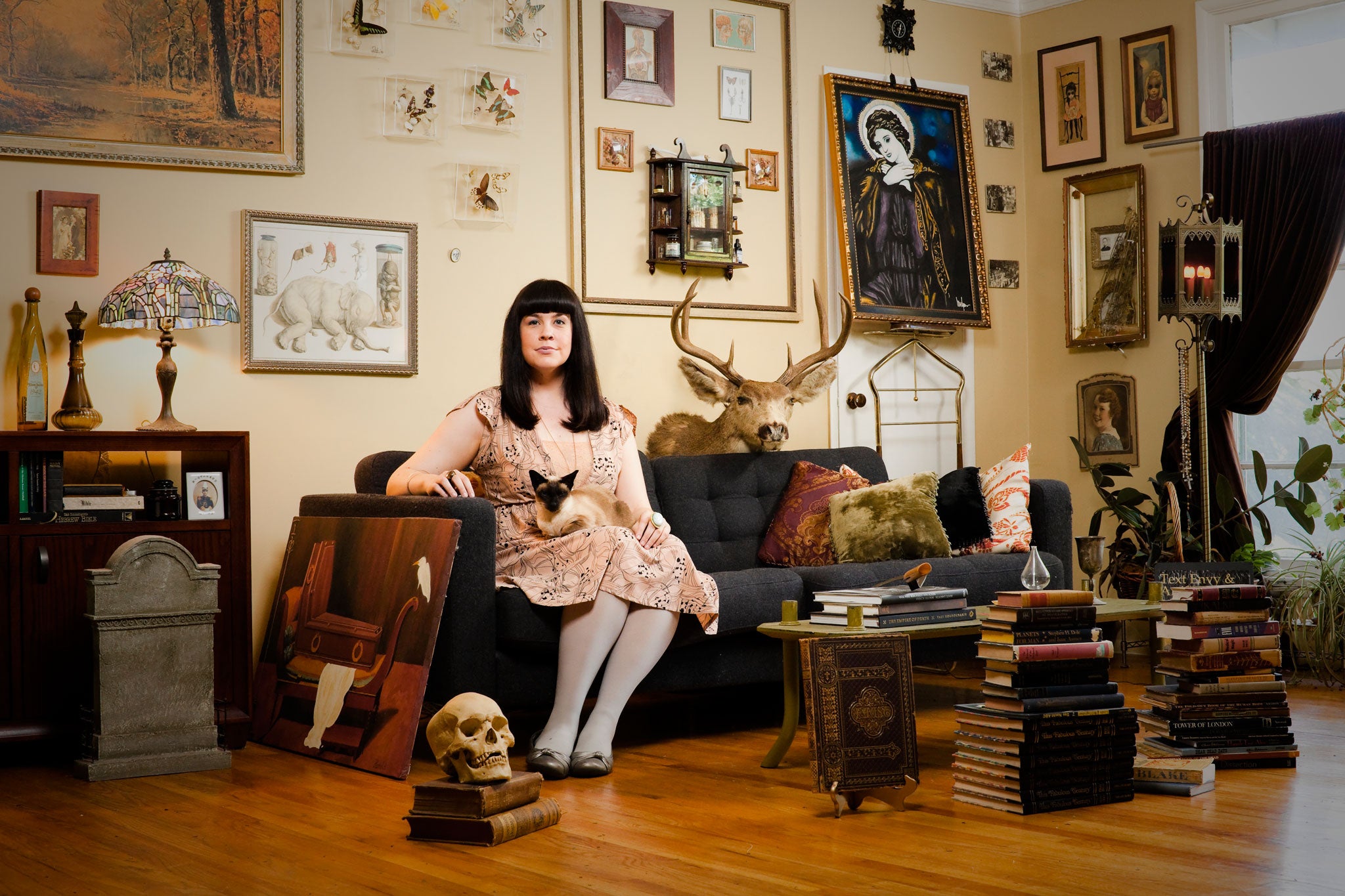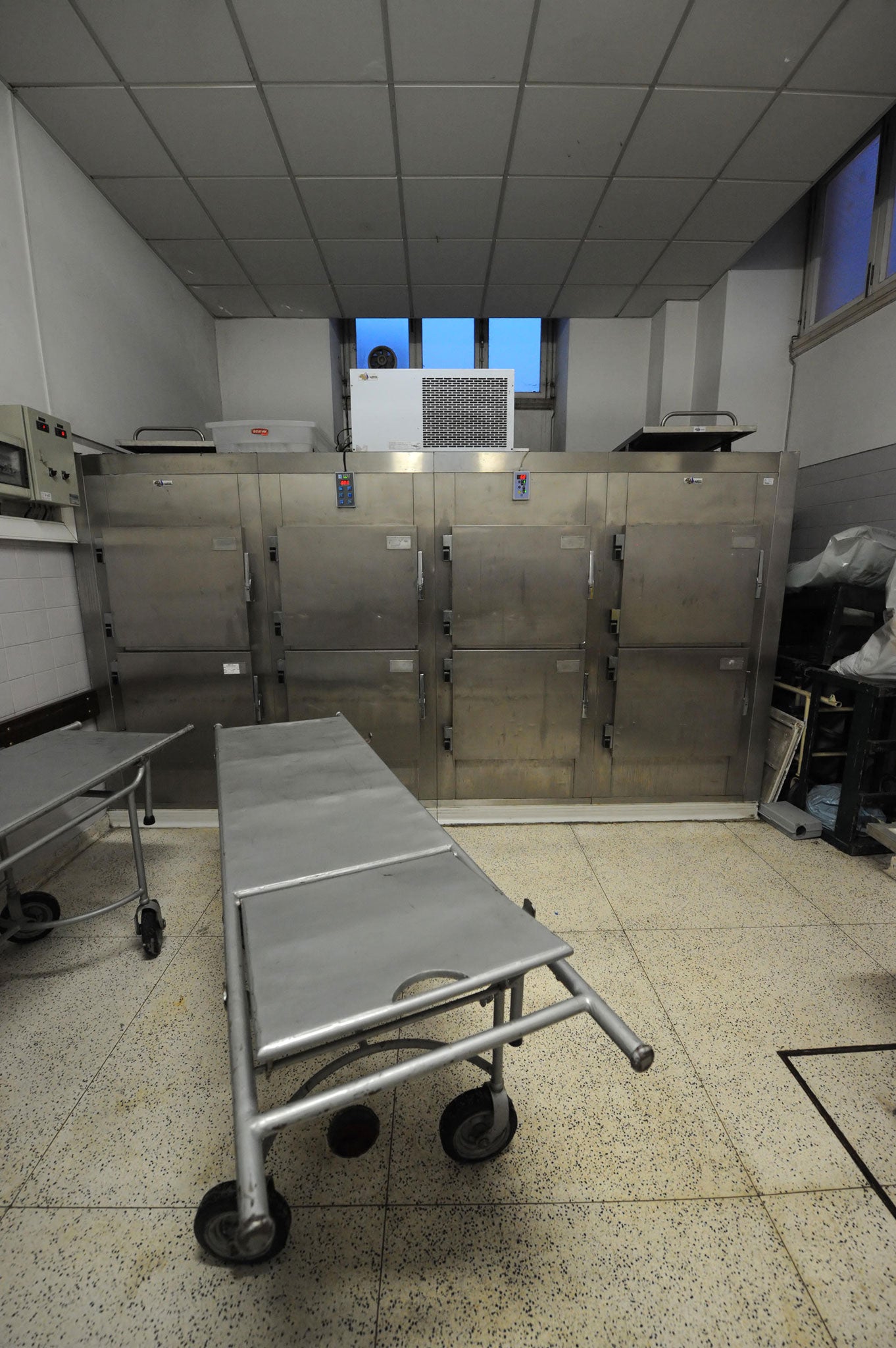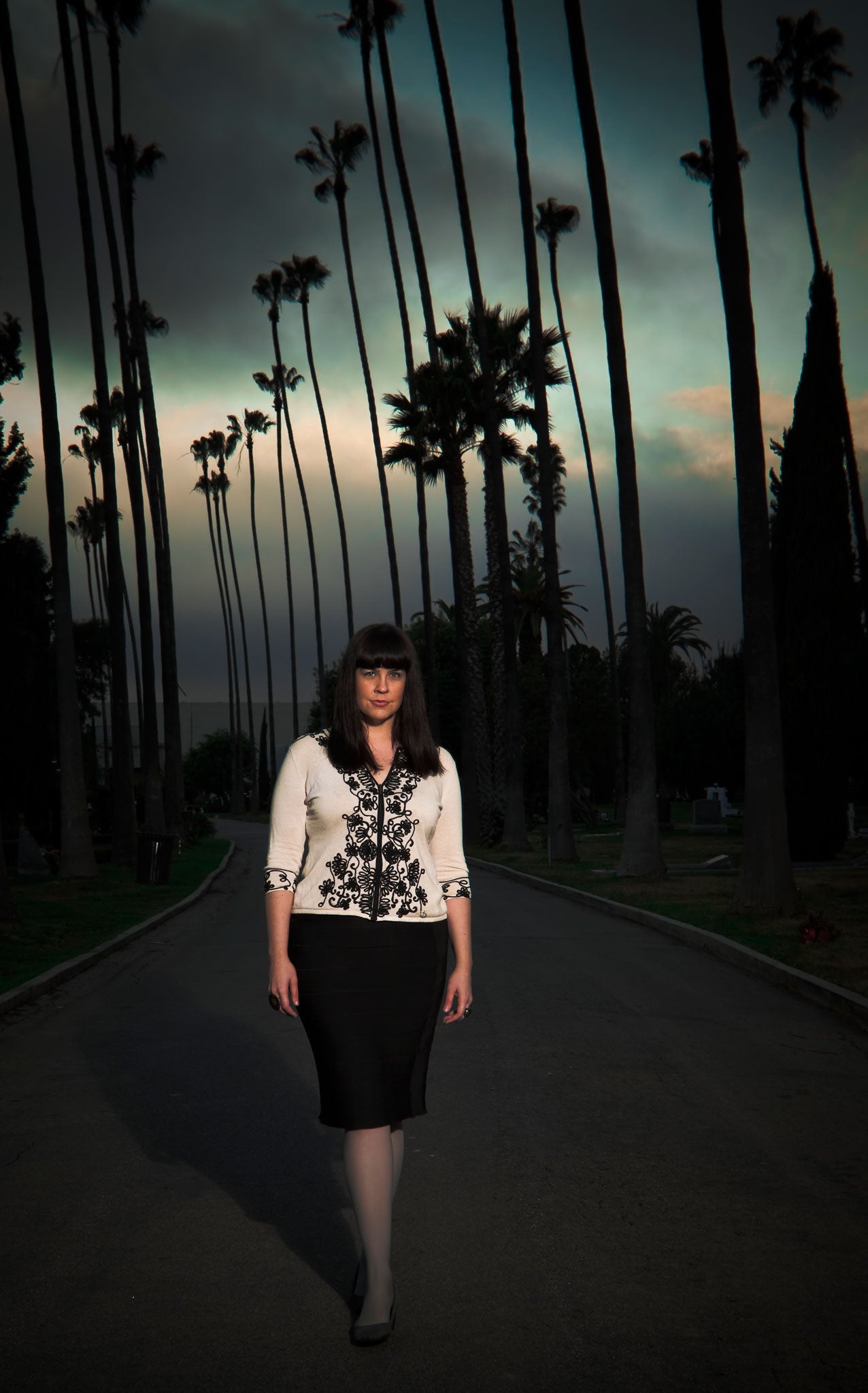Exclusive book extract: Mortician Caitlin Doughty reveals what life is like as the grimmest of reapers in her life-affirming memoir
Caitlin Doughty has loved the macabre since childhood. But, as she reveals in her new memoir, it was only when she began working as a mortician in San Francisco, aged 23, that she realised what it meant to be confronted by 19-stone corpses, cockroaches – and family members who really don’t want to let go

Your support helps us to tell the story
From reproductive rights to climate change to Big Tech, The Independent is on the ground when the story is developing. Whether it's investigating the financials of Elon Musk's pro-Trump PAC or producing our latest documentary, 'The A Word', which shines a light on the American women fighting for reproductive rights, we know how important it is to parse out the facts from the messaging.
At such a critical moment in US history, we need reporters on the ground. Your donation allows us to keep sending journalists to speak to both sides of the story.
The Independent is trusted by Americans across the entire political spectrum. And unlike many other quality news outlets, we choose not to lock Americans out of our reporting and analysis with paywalls. We believe quality journalism should be available to everyone, paid for by those who can afford it.
Your support makes all the difference.The first house call I went on, a week into working at Westwind, was in South San Francisco. The deceased was Mrs Adams, an African-American woman in her late forties who had died of breast cancer. To pick up Mrs Adams, Chris and I hopped into the van. This particular van, which Chris had owned for more than 20 years, was a white, windowless box of a vehicle, the kind they featured in televised public-service announcements to remind children not to accept lifts from strangers. Westwind owned its own removal van – much newer, dark blue, designed and fitted with special features for picking up the dead. But Chris liked his van.
Chris was in his late fifties, a bachelor with a white shock of hair, khakis and a button-down shirt. He was pessimistic and borderline curmudgeonly, but in a way that brought me happiness, like watching a Walter Matthau movie.
As we drove over the Bay Bridge connecting Oakland to San Francisco, I made the mistake of commenting on how beautiful the city looked that day. Chris was horrified. "Yeah," he said, "but you live there, so you know once you get up close it's just a noisy and dirty hell pit. It would be better if we just firebombed the whole city. That is – if we even make it across."
We pulled up outside the Adamses' home 20 minutes later with none of the pageantry of the funeral carriages of old. Before we went in, I made Chris go over everything again. I wasn't about to embarrass myself in front of this woman's husband. "Don't worry about it, Cat. A monkey could do this job. I'll talk you through it."
As we got closer to the house, it became clear that we would not be dealing with just the woman's husband. At least 15 people were milling around outside, eyeing us suspiciously as we walked up the front path. When we walked through the front door, we found ourselves in a high-ceilinged living room, where at least 40 people were gathered around a woman's body. Like the scratch of a needle on a skipping record, their voices all went silent at once as the group turned to look at us.
Oh great, I thought, the only two white people here have arrived to take their beloved matriarch away in our roving, child-molester van. Chris, however, didn't miss a beat. "Hello, folks, we're here from Westwind Cremation & Burial. Is this Mrs Adams here?" he asked, gesturing to the dead body in the centre of the room.
It was a pretty safe bet to assume that this was, in fact, Mrs Adams, but the group seemed to appreciate the question. A man stepped out and introduced himself as Mr Adams. Quick to prove myself useful, I asked in a solemn tone, "Were you her husband?" "Young lady, I am her husband. Not were her husband," he replied, fixing me with a withering gaze, compounded by the 40 other withering gazes from around the room. This is it, I thought. I'm done. I have shamed myself and my family and all is lost.
However, Chris was, again, unfazed. "Well, I'm Chris, and this is Caitlin," he said. "Are we ready to take her, here?" At this point the family usually leaves the room, leaving the funeral-home employees to do whatever they do with the corpse to make it disappear. But this family wanted to watch us. This meant my first time removing a body from a home was going to be in front of 40 crying people who hated me. This was the moment I learnt the magic of Chris.

He began talking me through the process in the same voice he'd used to talk about the day's elaborate traffic route. He explained how we were going to remove Mrs Adams as if he were telling the crowd. "Now we're going to pull the gurney right alongside the bed, and Caitlin is going to use that handle there to lower her side down. I'm going to take the sheet next to her head and Caitlin is going to take the sheet by her feet and slide it right underneath her. Caitlin is going to pick up her feet onto the gurney in one, two, three. Now she's going to wrap the second sheet over her and snap her in tightly."
This continued until Mrs Adams was swathed and buckled securely to the gurney. The people in the room paid rapt attention to the process, following Chris's voice step by step. The way Chris explained things made me believe I knew what I was doing. Surely there had never been a time I hadn't been an expert body-shrouder.
As we wheeled Mrs Adams out the front door, her son came up to us. He was my age, and his mother was dead. He wanted to lay a flower on the gurney. I didn't know what to say, so I blurted out, "She must have been a really amazing woman. Trust me, I can just tell these things."
This was, of course, a lie. This was my first house call and I still didn't know how to properly wrap the body in a sheet, let alone measure the vibe of the room to determine just how "amazing" a dead person was when they were living. "Um, yeah, thank you," he said.
Driving away from the house, Mrs Adams rattling gently in the back, Chris assured me I hadn't screwed everything up for ever. "Look, Cat, we see people at their worst moments. Maybe if someone's buying a new car, or a new house, they want to be there. But what are they buying from us? Nothing. We're charging money to take away someone they love. That's the last thing in the world they want." This made me feel better.
Westwind's two cremation machines could handle six bodies (three in each chamber) on a typical day – 30 souls a week during busy periods. Each removal took at least 45 minutes, longer if the deceased was across the bridge in San Francisco. By rights, Chris and I should have been out fetching bodies from homes constantly – but most deaths no longer happen at home.

Dying in the sanitary environment of a hospital is a relatively new concept. In the late 19th century, dying at a hospital was reserved for people who had nothing and no one. Given the choice, a person wanted to die at home in their bed, surrounded by friends and family. But times have changed, and these days, of the half a million people who die each year in the UK, only 18 per cent do so in their home (although 60 per cent say they would like to, given the choice).
My first few house calls for Westwind taught me that Chris was unflappable, even when removing bodies in the cramped, near-impossible conditions of San Franciscan homes. We'd walk up perilous, winding staircases, and Chris would just sigh and say, "Better get the portable." The portable was a portable stretcher, the kind they use to carry casualties off the field of battle. Chris and I would strap the deceased to that sucker and bring them out on their sides, k their stomachs, straight up and down, over our heads – anything it took to get them out to the van. "It's just like moving furniture," Chris explained. "Geometry and physics."
Chris was equally unflappable in the face of decomposed bodies, overweight bodies, and downright bizarre bodies. By bizarre, I mean like the time we arrived at a home in the Haight district and were escorted into a cold, decrepit basement by a gentleman who had the pointed moustache and clawed hands of horror-movie actor Vincent Price; propped up in the corner was the dead man, curled up in a ball with a single glass eye gazing up at us. "Well, that's weird, Cat. Him winking at us? Let's go get the portable."
The most important thing about body removal was never to give up. Trite, perhaps, but it was Chris's mantra. He told a story about a 19-stone body located up three flights of stairs in a hoarder house infested with cockroaches. His number-two man that day had refused to even attempt the removal, saying they'd never be able to get the person out with just the two of them. "I just lost all respect for him right then," Chris said. "I hate people who don't try."
A few weeks after our trip to the Adamses', Chris and I took a house call in the Marina district of San Francisco at a fancy home on a busy street. "You know what I think about, Cat?" Chris said as we pulled up outside and grabbed our rubber gloves "How we're like hitmen. Like the guys in Pulp Fiction. They're sitting there in the car talking about a sandwich, then they go blow someone's brains out. We're just sitting here in the car, chitchatting, and now we're goin' in for a dead body."
When we knocked, a dark-haired woman in her fifties opened the door. I gave her a big, sincere smile, having learnt at that point that a sincere smile was more effective than faked sympathy. "I called you hours ago!" she shrieked.
"Well, ma'am, you do know that it is rush hour and we were coming from Oakland," Chris said in his soothing voice. "I don't care," she continued. "Mom deserves the best. Mom would've wanted everything to be dignified. She was a dignified woman, this is not dignified." "I'm sorry, ma'am, we'll take good care of her," Chris said.
We continued into a bedroom to find Mom. As we pulled out the sheet to shroud her, the woman hurled her body over her mother, wailing dramatically. "No, Mother, no, no! I need you, Mother, don't leave me!" This is what raw human emotion should look like. It had all the signs: death, loss, gut-wrenching wailing.
I wanted to be moved, but I wasn't. "Guilt," Chris mumbled under his breath. "What?" I whispered back. "Guilt. I've seen this so many times. She hasn't visited her for years. Now she's here acting like she can't live without her mother. It's bullshit, Cat," he said.

I knew he was right. The woman finally extricated herself from her mother's corpse, and we were able to get Mom wrapped up and out the door. As we rolled the gurney out on to the busy street, people stopped and stared. Dog-walkers halted and yoga moms slowed their baby carriages. They gawked at us as if we were detectives pulling a body from a violent murder scene, not two mortuary workers handling a woman in her nineties who had died quietly at home in bed.
Today, not being forced to see corpses is a privilege of the developed world. On an average day in Varanasi, on the banks of the Ganges in India, anywhere from 80 to 100 cremation ghats burn. After a very public cremation (sometimes performed by young children from India's untouchable caste), the bones and ashes are released into the waters of the holy river. Cremations do not come cheap; families that cannot afford one but want their dead loved one to go into the Ganges will place the entire body into the river by night, leaving it there to decompose. There are so many of these corpses in the river that the Indian government releases thousands of flesh-eating turtles to chomp away at the "necrotic pollutants".
The industrialised world has established systems to prevent such unsavoury encounters with the dead. At this very moment, corpses motor down roads in unmarked white vans such as the one driven by Chris. Bodies crisscross the globe in the cargo holds of aeroplanes while vacationing passengers travel above.
We have put the dead in the recesses of our consciousness. It is only when the systems are subverted that we even realise they are there. After Hurricane Katrina, Dr Michael Osterholm of the Center for Infectious Disease Research and Policy at the University of Minnesota told The Washington Post: "One of the many lessons to emerge is that Americans are not accustomed to seeing unattended bodies on the streets of a major city." Understatement of the century, doctor. For the few minutes it took Chris and me to roll Mom from her door to the back of the van, we gave the dog-walkers and yoga moms a cheap, manageable thrill. A whiff of depravity, a small taste of their own mortality.
This is an edited extract from 'Smoke Gets in Your Eyes, and Other Lessons from the Crematory', by Caitlin Doughty, published by Canongate on Thursday, priced £12.99. With John Troyer, deputy director of the Centre for Death and Society at the University of Bath, Doughty will be making the case for a more enlightened attitude to death, at a Barbican Open Salon, London EC2, at 7.30pm on Wednesday. For tickets: barbican.org.uk
Join our commenting forum
Join thought-provoking conversations, follow other Independent readers and see their replies
Comments